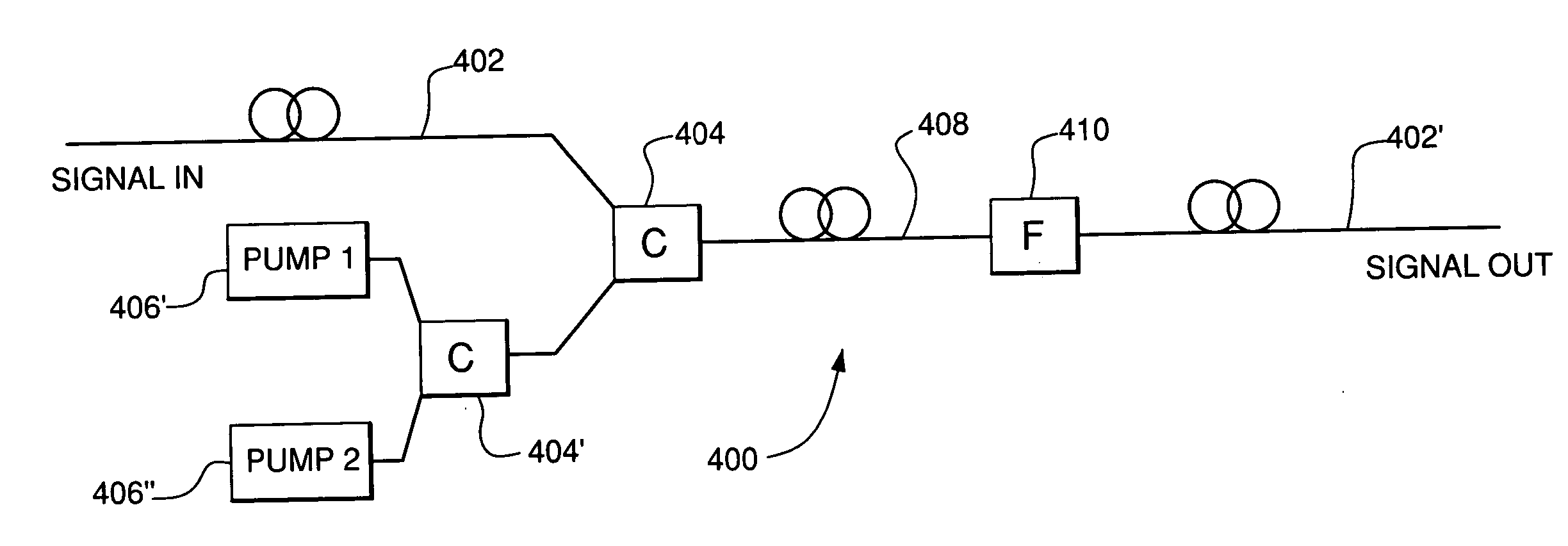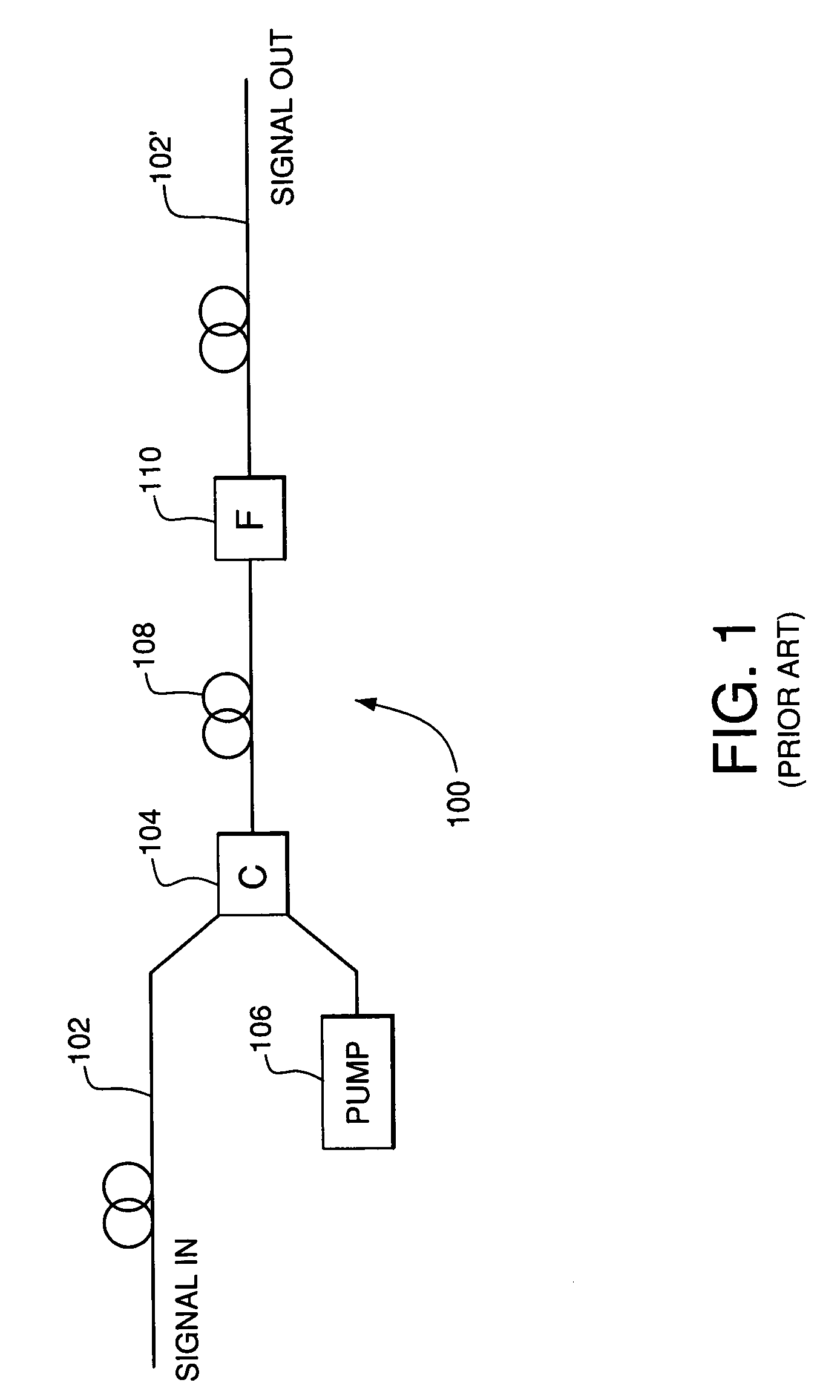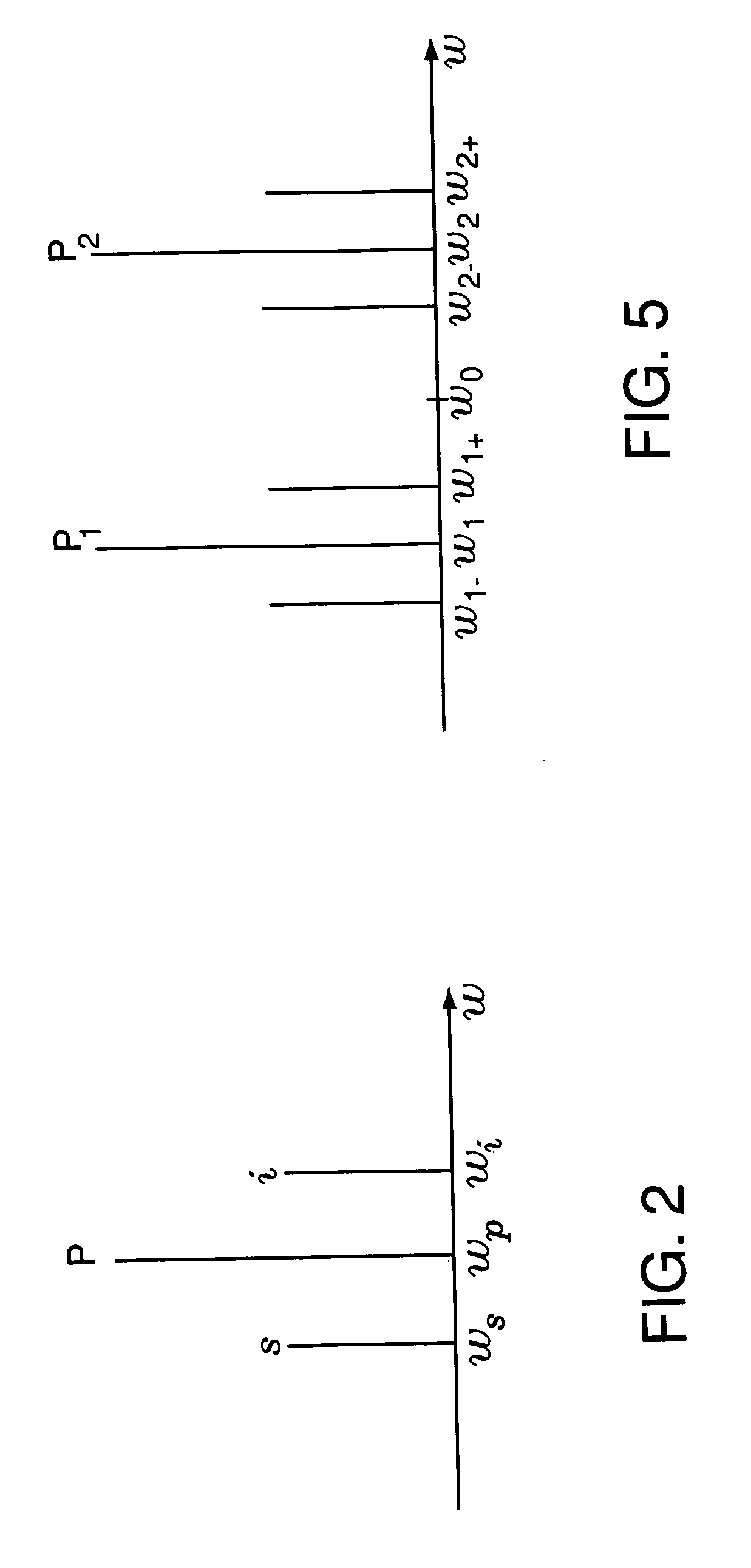Parametric amplification using two pump waves
a technology of parametric amplification and pump wave, which is applied in the direction of amplifiers, light demodulation, instruments, etc., can solve the problems of limiting the intensity of the pump wave and therefore the gain in opa b>100/b>, affecting the use of opas in optical communication systems, and spectral width of its gain band may be relatively narrow
- Summary
- Abstract
- Description
- Claims
- Application Information
AI Technical Summary
Benefits of technology
Problems solved by technology
Method used
Image
Examples
Embodiment Construction
[0025] Reference herein to “one embodiment” or “an embodiment” means that a particular feature, structure, or characteristic described in connection with the embodiment can be included in at least one embodiment of the invention. The appearances of the phrase “in one embodiment” in various places in the specification are not necessarily all referring to the same embodiment, nor are separate or alternative embodiments mutually exclusive of other embodiments.
[0026] Before embodiments of the present invention are described in detail, different factors affecting the performance of prior art OPA 100 of FIG. 1 are briefly characterized.
[0027]FIG. 2 illustrates the process of parametric amplification in OPA 100. Signal amplification in OPA 100 is governed by a degenerate four-wave mixing (FWM) process, in which two pump photons (labeled P in FIG. 2) combine to generate one signal photon and one idler photon (labeled s and i, respectively, in FIG. 2) according to the following equation:
2...
PUM
| Property | Measurement | Unit |
|---|---|---|
| wavelengths | aaaaa | aaaaa |
| zero-dispersion wavelength | aaaaa | aaaaa |
| zero-dispersion frequency | aaaaa | aaaaa |
Abstract
Description
Claims
Application Information
 Login to View More
Login to View More - R&D
- Intellectual Property
- Life Sciences
- Materials
- Tech Scout
- Unparalleled Data Quality
- Higher Quality Content
- 60% Fewer Hallucinations
Browse by: Latest US Patents, China's latest patents, Technical Efficacy Thesaurus, Application Domain, Technology Topic, Popular Technical Reports.
© 2025 PatSnap. All rights reserved.Legal|Privacy policy|Modern Slavery Act Transparency Statement|Sitemap|About US| Contact US: help@patsnap.com



